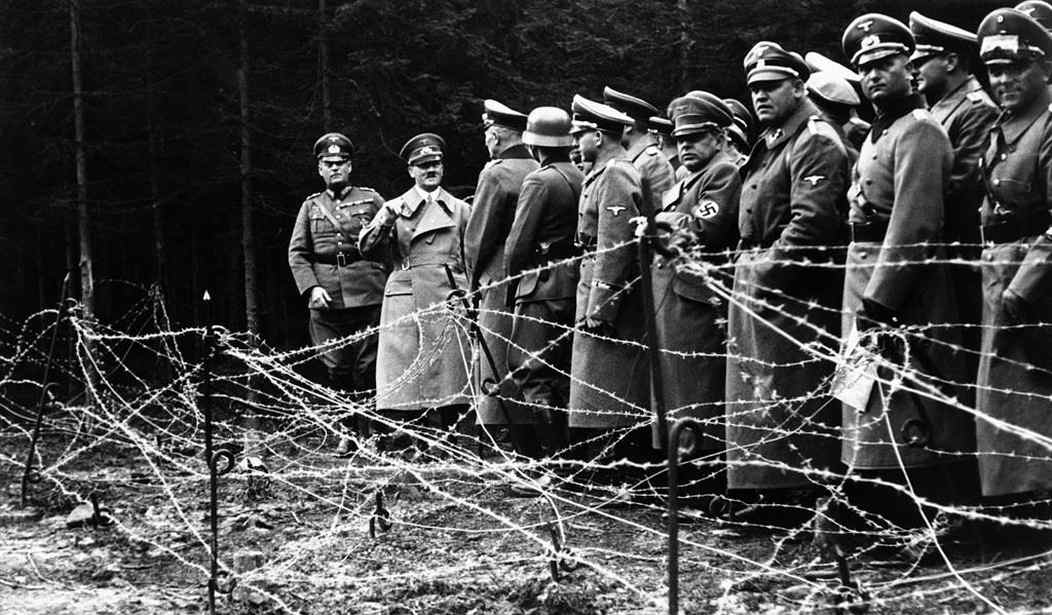The recent funeral of Queen Elizabeth II and the nearly universal praise for the monarch’s dedication to service during her 70 years on the throne took me back to one of the last times I was in England, doing my best to bring to light that same commitment to service and community by two women who risked their lives to save dozens of refugees just before the Second World War.
But unlike Queen Elizabeth, English sisters Ida and Louise Cook have been lost to history.
Until now.
Five years ago I spent days sifting through the ephemera of their lives stuffed into stiff brown envelopes that arrived on a librarian’s cart at the Victoria & Albert Archives at Blythe House in London.
I eagerly opened one envelope after another, some stuffed with elaborately illustrated 1920s Royal Opera House programs from Covent Garden with their ads for Columbia New Process Records, Steinway grand pianos, and the Cliftophone— “the world’s best gramophone.” Other programs for the Salzburg Festival and opera in Berlin, Munich, and Vienna were in German, and some featured large swastikas on the covers with introductory remarks by Adolf Hitler on facing pages. There were faded black-and-white promotional photographs of stars in rich velvet tunics, adorned in brocade. “With sincere good wishes,” reads the autograph of the renowned American baritone Lawrence Tibbett “as Iago,” on his fan photo for the Metropolitan Opera’s 1937 production of Giuseppe Verdi’s Otello. Other envelopes yielded sheaves of handwritten correspondence from Vienna, Munich, Berlin, and New York.
One letter immediately intrigued me.
Written in a rapid, flowing hand on cream-colored stationery, embossed with “Sul Monte, N.Y.” at the top of the page, it contained three pressed maple leaves. They were brown with age, but otherwise perfectly preserved, even though the date on the letter was October 16, 1931.
Recommended
There was something magical about finding those leaves in October 2017—eighty-six years after the letter was written, and on the first day of my research into the lives of Ida and Louise Cook, English sisters who risked their lives to bring twenty-nine Jewish refugees to safety on the eve of war.
The pressed leaves not only spoke to the romantic character of the letter writer—the great soprano Amelita Galli-Curci, who became a lifelong friend to Ida and Louise—but also to the sense of wonder and innocence of the sisters themselves.
Who were these women whose historical legacy includes pressed autumn leaves? How did they become “Two Against Hitler ,” among the unlikeliest heroines of the Second World War?
I knew that part of the answer lay in their passion for opera and its stars. In appearance, Ida and Louise were unthreatening and forgettable. They were plain and anonymous civil-servant typists who lived quietly with their parents in south London. But they developed intense inner lives. They were clearly infatuated with Clemens Krauss, the dashing Austrian conductor—Hitler’s favorite—who along with his wife, the soprano Viorica Ursuleac, started them on their refugee work. The Cooks formed deep friendships with the performers and musicians who found themselves stuck in a real-life melodrama in Nazi Germany and Austria, immersed in desperate scenes punctuated by burning synagogues and helmeted Nazis wielding bayonets and rounding up women and children. Inspired by their operatic heroines, the sisters naively thrust themselves into this dark overture.
Yet they could scarcely have imagined what awaited them when they began queuing outside Covent Garden for cheap seats to performances as the Nazis began their rise to power in Germany. In the 1920s and early 1930s, the sisters innocently amassed a sizable collection of photographs that Ida took of their favorite stars and collected dozens of gramophone records. Ida, the more outgoing of the two, maintained a decades-long correspondence with her beloved prima donnas. In addition to Galli-Curci, she corresponded with Elisabeth Rethberg, and later Rosa Ponselle.
It was largely through Ida’s letters, most of them tightly typed on light-blue aerograms and scattered in the miscellaneous correspondence files of some of the world’s most celebrated sopranos (but also baritones and tenors) that I was able to piece together the story of these extraordinary ordinary sisters.
“My dear Ida,” began the letter in which Galli-Curci enclosed the leaves from Sul Monte, her lavish estate in the Catskill Mountains, where she would invite her “English girls” for visits. The sisters held on to those leaves into their old age—priceless tokens of their opera-world adventures that began after they met the Italian diva backstage at the Albert Hall in London—and naively vowed to save enough money to hear her sing at the Metropolitan Opera in New York. It would take them two years of going without lunches and walking most of the way to their secretarial jobs to manage to buy their third-class passage to sail to the city. They made the first of many trips to their beloved Manhattan in 1927 when Louise was twenty-five and Ida twenty-two.
The same pluck and determination that launched them in their passion for opera would propel them on their increasingly dangerous missions into the Third Reich. In fact, they used opera performances as a ruse to travel into Austria and Germany to meet their refugees.
“We built ourselves a reputation. The men in customs used to chuckle, ‘Here come those two verruckt (crazy) English ladies. They are only poor office workers and they spend their money to come here to listen to German opera.’”
They were too obvious to be suspicious.
When they returned to London after a weekend at the opera in Munich, Vienna, or Berlin, they did so laden with the glittering jewels, Swiss watches, and furs belonging to refugees who would otherwise have had to surrender their valuables to the Nazis upon their exit from the Reich. Boldly plastered on their Woolworth dresses, the sisters gambled that the expensive jewelry would surely look fake.
Their mission, the calling for which they would risk everything, was successful. And it would succeed again and again.
Isabel Vincent is the author of Overture of Hope: Two Sisters’ Daring Plan That Saved Opera’s Jewish Stars from the Third Reich and an investigative reporter at The New York Post.

























Join the conversation as a VIP Member